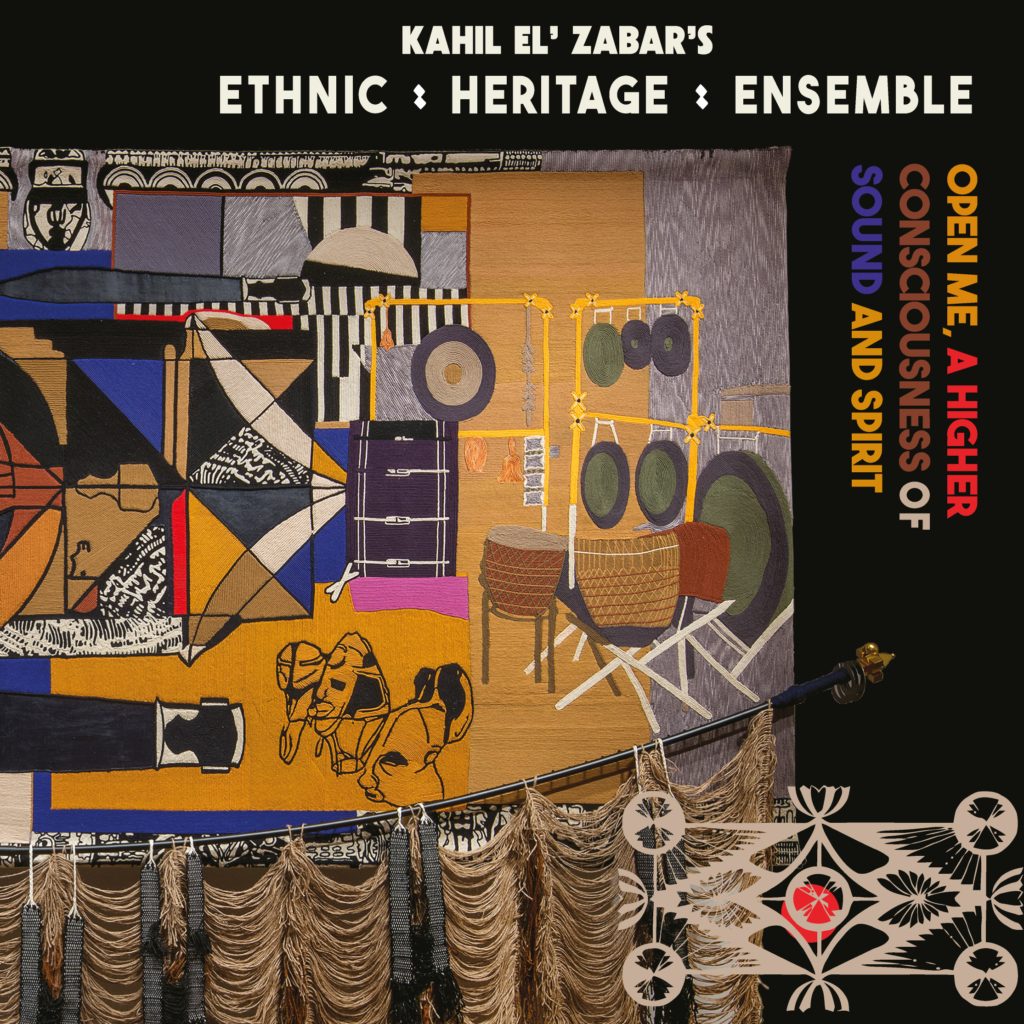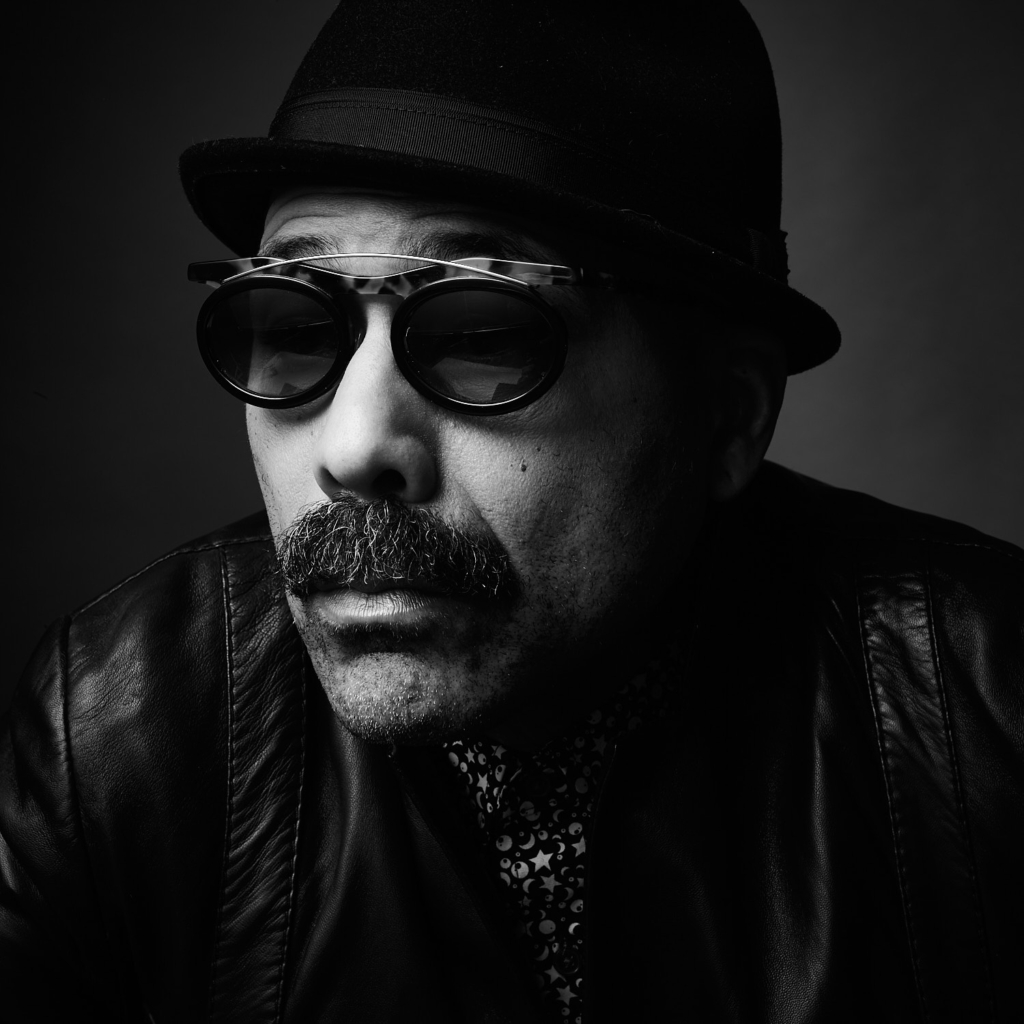Kahil El’Zabar’s Ethnic Heritage Ensemble
Open Me, A Higher Consciousness of Sound and Spirit (Spiritmuse)
Contact Sam McAllister & Yuri Kwon about Kahil El’Zabar’s Ethnic Heritage Ensemble
Kahil El’Zabar’s Ethnic Heritage Ensemble, in conjunction with the legendary group’s 50th anniversary, announces its new album, Open Me, A Higher Consciousness of Sound and Spirit, out March 8th, 2024 via Spiritmuse Records, and shares lead single, “Compared To What.” In addition, the ensemble announces their 50th annual February North American Tour in honor of Black History Month.
Open Me is a joyous honoring of portent new directions of the Ethnic Heritage Ensemble; it’s a visionary journey into deep roots and future routes, channeling traditions old and new. It mixes El’Zabar’s original compositions with timeless classics by Miles Davis, McCoy Tyner, and Eugene McDaniels. Thus, the Ethnic Heritage Ensemble continues affirming their indelible, half-century presence within the continuum of Great Black Music.
The Ethnic Heritage Ensemble (EHE) constantly shifts gears and tempos in a jazz-blues continuum, in perpetual spontaneity, and “Compared To What” is a powerful statement on their incomparable sound. It’s a deeply funky read of Eugene McDaniel’s eternal protest song first recorded by Robert Flack, and later, Les McCann and Eddie Harris. Featuring vocals and kalimba by El’Zabar, backed by bassist Alex Harding, the EHE’s “Compared To What” is 8 minutes of contemplative, dynamic rhythms combined with El’Zabar’s deep captivating vocals, and accompanying horn and string cacophony that tunes the listener to their higher consciousness.
“Compared To What’ was my father, Clifton Blackburn Sr’s favorite tune,” says El’Zabar. “On Saturdays he would play jazz all day, and later in the evening, he would scat, sing rhythms, and then he and I would improvise together on the grooves that he taught me. It was all ‘Compared to What.’”
Open Me, El’Zabar’s sixth collaboration with Spiritmuse in five years, marks another entry in a run of critically acclaimed recordings that stretch back to the first EHE recording in 1981. The storied multi-percussionist, composer, fashion designer, and former Chair of the Association of Creative Musicians (AACM) is in what might be the most productive form of his career, and now in his seventies, shows no signs of slowing down. Few creative music units can boast such longevity, and fewer still are touring as energetically and recording with the verve of the Ethnic Heritage Ensemble.
The EHE was founded by El’Zabar in 1974 originally as a quintet, but was soon paired down to its classic form — a trio, featuring El’Zabar on multi-percussion and voice, plus two horns. It was an unusual format, even by the standards of the outward-bound musicians of the AACM: “Some people literally laughed at our unorthodox instrumentation and approach. We were considered even stranger than most AACM bands at the time. I knew in my heart though that that this band had legs, and that my concept was based on logic as it pertains to the history of Great Black Music, i.e. a strong rhythmic foundation, innovative harmonics and counterpoint, well-balanced interplay and cacophony amongst the players, strong individual soloist, highly developed and studied ensemble dynamics, an in-depth grasp of music history, originality, fearlessness, and deep spirituality.”
With El’Zabar at the helm, the band’s line-up has always been open to changes, and over the years the EHE has welcomed dozens of revered musicians including Light Henry Huff, Kalaparusha Maurice Macintyre, Joseph Bowie, Hamiett Bluiett, and Craig Harris. The current line-up has been consolidated over two decades — trumpeter Corey Wilkes entered the circle twenty years ago, while baritone sax player Alex Harding joined seven years ago, after having played with El’Zabar since the early 2000s in groups such as Joseph Bowie’s Defunkt.
For Open Me, El’Zabar has chosen to push the sound of the EHE in a new direction by adding string instruments — cello, played by Ishmael Ali, and violin/viola played by James Sanders. The addition of strings opens new textural resonances and timbral dimensions in the Ensemble’s sound, linking the work to the tradition of improvising violin and cello from Ray Nance to Billy Bang, Leroy Jenkins, and Abdul Wadud.
Open Me contains a mixture of originals, including some El’Zabar evergreens such as “Barundi,” “Hang Tuff,” “Ornette,” and “Great Black Music” (often attributed to the Art Ensemble of Chicago but is, in fact, an El’Zabar composition). There are also numbers drawn from the modern tradition, which El’Zabar uniquely arranges, including a contemplative interpretation of Miles Davis’ “All Blues.” As a milestone anniversary celebration and a statement of future intent, Open Me effortlessly carries El’Zabar’s healing vision of Higher Consciousness of Sound and Spirit.

